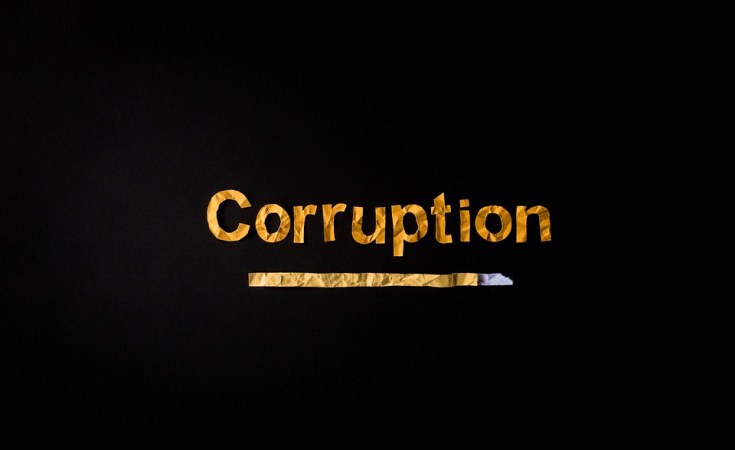Only one-third of citizens think the government is truly committed to fighting corruption.
Key findings
- Most survey enumeration areas have a piped water system (81%) and access to an electricity grid (95%). But 42% of South Africans say they went without enough water at least several times during the previous year, and 21% say they have functioning electricity only "occasionally" or not at all.
- Few citizens approve of the government's performance on delivering services such as water and sanitation (28%) and electricity (12%). Both ratings are significantly worse than in 2021.
- More than eight in 10 South Africans (82%) believe corruption increased over the past year, and only 10% say the government is doing "fairly well" or "very well" at fighting it.
- A growing proportion of respondents say "most" or "all" officials in key public institutions are involved in corruption, including in the Presidency (65%, up from 53% in 2021) and in Parliament (63%, up from 51%).
- Close to three-quarters (72%) of South Africans say ordinary people risk retaliation if they report corruption to the authorities.
In South Africa, protests against poor public services are common, sometimes turning violent and destructive as citizens express their frustration with inadequate water supply, sanitation, housing, and electricity (Stoltz, 2023; Mpani, 2021; Njilo, 2020).
At the forefront of protesters' demands are calls for an end to widespread corruption that they say undermines the state's ability to deliver high-quality public services (SABC, 2022). Researchers agree, arguing that when corruption infiltrates the public sector, funds intended for infrastructure development, health care, education, and other critical areas are siphoned off or misused, leaving citizens with substandard services (Mpani, 2021; Comins, 2020; Ardigó & Chêne, 2017). Additionally, Kota (2021) notes that corruption fosters a culture of impunity and undermines the merit-based recruitment and promotion of competent public servants, further hindering the efficient delivery of public services.
Talk of the fight against corruption has dominated local and national election campaigns as well as the South African media. The government has taken a number of steps to fight corruption, including the establishment in 2010 of the Anti-Corruption Task Team, charged with fast-tracking high-priority investigations and prosecutions (South African Government, 2023). Last year President Cyril Ramaphosa closed the African National Congress' National Conference with a pledge to fight corruption and acknowledged that it is a threat to the ruling party (Magome, 2022). And in November, blaming poor service delivery on corruption, Ramaphosa said the government was working on new laws to eliminate corruption in municipalities (Mabaso, 2022).
In a country that is considered an economic powerhouse but where electricity outages are a daily occurrence and some areas still rely on weekly water-truck deliveries, political parties have used dissatisfaction with service delivery as a key driver for building support (Malinga & Beukes, 2021). But they have also been implicated in embezzlement scandals related to infrastructure projects and payments to the electric utility Eskom, resulting in public outcries and further erosion of service delivery (Daily Investor, 2023). Last year, an ANC majority in Parliament blocked probes into corruption at Eskom (Mail & Guardian, 2023) and into the Phala Phala scandal involving the alleged theft of $4 million in cash from Ramaphosa's game reserve (Myeni, 2022), leading critics to suggest that the fight against corruption is all talk and no action (Merten, 2022, 2023).
Meanwhile, citizen trust in public institutions that are supposed to address corruption has been dwindling (Moosa & Hofmeyr, 2021); a study by Edelman Trust Barometer in 2021 reports that only 27% of South Africans trust their government (Richards, 2021).
Against this background, how do South Africans perceive service delivery and corruption?
Findings from the most recent Afrobarometer survey show that while service infrastructure covers much of the country, this does not translate into service delivery. Many citizens report going without enough water and electricity, and most say the government is doing a poor job of delivering key public services.
Majorities say the level of corruption in the country continues to increase, the government is failing in attempts to control it, and ordinary South Africans risk retaliation if they report it to the authorities. Overall, only one-third of citizens believe the government is truly committed to fighting corruption.
Jamy Felton Jamy is the head of data management at Afrobarometer
Shannon van Wyk-Khosa Shannon is the digital portfolio manager at Afrobarometer
Nyasha Mpani Nyasha Mpani is project leader for the Data for Governance Alliance Project, based at the Institute for Justice and Reconciliation.


